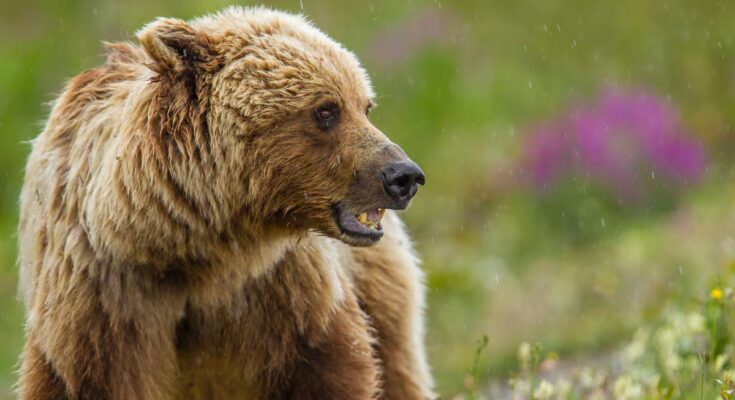The news shocked Canada: a group of elementary school students, accompanied by some teachers, were attacked this Thursday by a brown bear in the province of British Columbia. The toll is 11 injured; Four of them – three minors and a teacher – were taken to hospital with serious injuries. The teachers used sprays and firecrackers to scare the animal. Tamara Davidson, the provincial environment minister, said Friday that they “took a great risk to protect students,” adding that they were “real heroes.”
Emergency services received a call this Thursday around 2pm. (Pacific Time) about a bear attack on a trail near Bella Coola, a community located about 700 kilometers northwest of Vancouver. According to the British Columbia Conservation Agent Service, the school group was having lunch near a river when they were surprised by the ursid. The four seriously injured were transported to a health center in Bella Coola before being transferred to a hospital in Vancouver. The other seven injured received medical treatment at the scene of the attack.
Speaking to the Canadian Press, Veronica Schooner said her 10-year-old son was part of the school trip. The boy told him that he could feel the animal’s fur. “He ran for his life. The bear passed very close to him, but it was chasing another person,” Schooner said. The group of students and teachers are part of the Acwasalcta school, an institution run by the indigenous Nuxalk. The authorities are asking residents in the area to stay in their homes. A team of officers continues to search for the bear. Apparently the animal had already been injured previously.
British Columbia has about 15,000 grizzly bears of the 26,000 that live in Canada. Kevin Van Damme, spokesperson for the Conservation Agent Service of this province, said in a press conference this Friday that work is being done to clarify the reasons for the attack. “In my 34 years of experience, I have never seen an attack like this against such a large group of people,” he said. The growth of the population of these animals and the loss of their habitat, experts point out, explain why they come into contact with humans more and more frequently. In turn, warmer winters influence hibernation periods.



